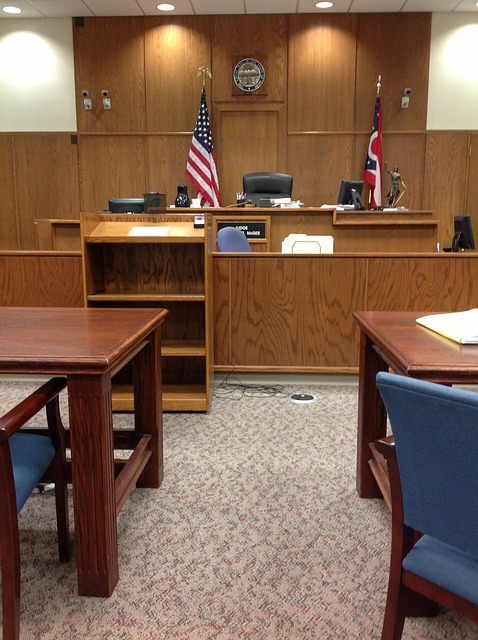Healthcare compliance experts play a vital role in guiding medical institutions through legal complexities, including plea bargaining strategies. This process offers defendants facing HIPAA violations or white-collar crimes a way to navigate legal challenges, with potential benefits like reduced charges and quicker resolutions. However, it also carries significant risks, such as public disclosure of guilt and long-term repercussions on reputation and employment. Strategic planning and careful consideration are essential for both healthcare organizations and individuals to balance the plea bargaining pros and cons effectively.
Healthcare Compliance Experts play a pivotal role in ensuring institutions adhere to intricate regulations. These experts, armed with deep knowledge and experience, guide organizations through complex legal landscapes. This article delves into their crucial responsibilities, focusing on plea bargaining as a strategic option for defendants facing healthcare compliance charges. We explore the pros and cons of using plea bargains, highlighting how this approach can navigate legal proceedings while considering the unique challenges faced by healthcare providers.
- Understanding Healthcare Compliance Experts: Their Role and Expertise
- Plea Bargaining: A Strategic Option for Defendants in Legal Proceedings
- The Pros of Plea Bargaining for Healthcare Compliance Cases
- Cons and Potential Pitfalls of Plea Bargaining for Defendants
Understanding Healthcare Compliance Experts: Their Role and Expertise

Healthcare Compliance experts are vital to ensuring that medical institutions and professionals adhere to a complex web of laws, regulations, and ethical standards. Their expertise lies in navigating the intricate landscape of healthcare policies, which is essential for maintaining patient safety and privacy, as well as preventing legal repercussions. These specialists possess a profound understanding of federal and state-level legislation, such as HIPAA (Health Insurance Portability and Accountability Act) and various clinical practice guidelines, enabling them to offer strategic guidance to healthcare organizations.
One of their key roles involves advising on plea bargaining strategies for defendants facing legal issues. Healthcare Compliance experts can help assess the Pros and Cons of this approach, especially in cases where a complete dismissal of all charges is achievable across the country. Their experience in achieving extraordinary results through compliance management ensures that medical entities and individuals alike are well-prepared to face legal challenges head-on.
Plea Bargaining: A Strategic Option for Defendants in Legal Proceedings

Plea bargaining is a strategic option for defendants in legal proceedings, particularly those involved in white-collar crimes. This process allows individuals to avoid indictment and navigate complex healthcare compliance issues with reduced exposure. By entering into a plea agreement, defendants can negotiate specific charges, penalties, and sometimes even a lighter sentence in exchange for their cooperation with prosecutors. This strategy can be beneficial for both parties; it expedites the legal process, conserves resources, and provides some level of predictability for sentencing.
However, there are also plea bargaining pros and cons for defendants to consider. While it offers a path to avoiding indictment and potentially mitigating consequences, it may come with drawbacks such as public disclosure of guilt or loss of certain rights. The decision to engage in plea bargaining should be made carefully, taking into account the specific circumstances of each case. Across the country, legal experts emphasize the importance of comprehensive understanding and strategic planning for those considering this option, ensuring they receive adequate representation to protect their interests.
The Pros of Plea Bargaining for Healthcare Compliance Cases

Plea bargaining has emerged as a strategic approach for healthcare compliance experts when dealing with legal cases involving corporate and individual clients accused of white-collar and economic crimes. One of the key advantages is its ability to offer a mutually beneficial solution. For defendants, pleading guilty can lead to reduced charges or a lighter sentence, providing an opportunity for a quicker resolution compared to lengthy trials. This strategy is particularly appealing in complex healthcare compliance cases where proving innocence beyond a reasonable doubt may be challenging.
By negotiating a plea bargain, healthcare organizations and their representatives can avoid the public exposure and potential reputational damage associated with high-profile trials. Moreover, it allows for a more discreet handling of sensitive information, which is crucial when dealing with patient records and confidential business matters. This approach enables corporate and individual clients to learn from their mistakes, implement stricter compliance measures, and move forward while ensuring that justice is served in winning challenging defense verdicts.
Cons and Potential Pitfalls of Plea Bargaining for Defendants

Plea bargaining is a process where a defendant agrees to plead guilty or no contest to reduced charges in exchange for a lighter sentence. While it can offer several advantages, such as avoiding the uncertainty and length of jury trials, there are potential pitfalls for defendants to consider. One significant con is that a plea bargain may not always result in the most favorable outcome, especially if the defendant is innocent or facing charges they do not fully understand. This can lead to long-term consequences, including damage to professional reputations, restrictions on future employment opportunities, and even legal repercussions if the plea is later revoked.
Additionally, the pressure to accept a plea bargain often comes from a desire to expedite the process and avoid the scrutiny of public trial. However, this rush may result in hasty decisions that could impact the defendant’s life significantly. Across the country, philanthropic and political communities have been vocal about the need for fair judicial processes, emphasizing the importance of ensuring defendants understand their rights and the potential consequences before agreeing to a plea bargain.
Healthcare compliance experts play a pivotal role in ensuring that organizations adhere to legal and ethical standards. When facing legal proceedings, plea bargaining can be a strategic option, offering both advantages and potential pitfalls for defendants. By understanding the intricacies of plea bargaining, healthcare professionals can make informed decisions, navigating the complex landscape of compliance to mitigate risks and achieve favorable outcomes. Balancing the pros and cons is key to successfully managing healthcare compliance cases, ultimately fostering trust and integrity within the industry.






